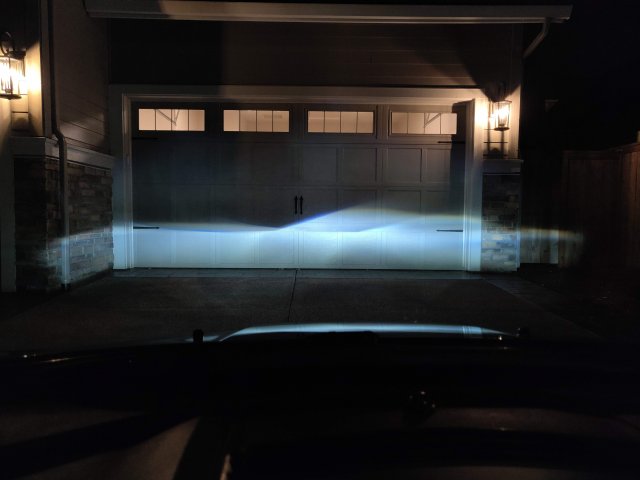Maybe something to look at that could shed some light on the situation is the lux of a halogen filament at 55W compared to the lux of common LEDs used in these "cutting edge" LED drop-ins.
LEDs are making leaps and bounds in efficiency, but since the majority of the LED lighting industry is focused on lm/w, most of the common single-chip emitters with high luminous flux are the ones with larger dies. Larger dies means more power needed to reach a target lux, and more waste light that is not going to be at the focal cylinder of the incandesent reflector. Lumens are nice, but for lumens to be usable, they must originate from where the reflector expects them to originate from. So while your LED emitter chip is 2.5mm^2, you can only accurately use a small strip of that. Most of your light ends up "wasted" as glare, hotspots, or otherwise unintended reflection.
The bare fundamental question to ask regarding replacing halogen filaments with LEDs is, is it feasible to drive an LED so hard that its surface brightness matches the surface brightness of a halogen filament? In a hot engine bay, while mounted to a tiny twig of a heatpipe? I'm a bit behind, but I don't think LEDs have it in them, even today, to generate high enough lux.
You can put as many of these LEDs in whatever arrangement is marketable, but if the surface brightness isn't there, they will not produce the intended beam at the expected brightness level.
That said, if someone's dead-set on upgrading their lighting responsibly, a retrofit might be worth looking into. If you pull OEM components, you know they will perform as expected.
p.s.:
My 2000 Corolla had HIDs. OEM projector optics from an infiniti G35, new ballasts and bulbs from Philips/Hella and Philips, mounted to meet aiming specifications and rotational level. HIDs ain't as cool as LEDs, apparently, but they're easier to retrofit!
p.p.s: Trying to get my post count up, I should post shorter posts!
LEDs are making leaps and bounds in efficiency, but since the majority of the LED lighting industry is focused on lm/w, most of the common single-chip emitters with high luminous flux are the ones with larger dies. Larger dies means more power needed to reach a target lux, and more waste light that is not going to be at the focal cylinder of the incandesent reflector. Lumens are nice, but for lumens to be usable, they must originate from where the reflector expects them to originate from. So while your LED emitter chip is 2.5mm^2, you can only accurately use a small strip of that. Most of your light ends up "wasted" as glare, hotspots, or otherwise unintended reflection.
The bare fundamental question to ask regarding replacing halogen filaments with LEDs is, is it feasible to drive an LED so hard that its surface brightness matches the surface brightness of a halogen filament? In a hot engine bay, while mounted to a tiny twig of a heatpipe? I'm a bit behind, but I don't think LEDs have it in them, even today, to generate high enough lux.
You can put as many of these LEDs in whatever arrangement is marketable, but if the surface brightness isn't there, they will not produce the intended beam at the expected brightness level.
That said, if someone's dead-set on upgrading their lighting responsibly, a retrofit might be worth looking into. If you pull OEM components, you know they will perform as expected.
p.s.:
My 2000 Corolla had HIDs. OEM projector optics from an infiniti G35, new ballasts and bulbs from Philips/Hella and Philips, mounted to meet aiming specifications and rotational level. HIDs ain't as cool as LEDs, apparently, but they're easier to retrofit!
p.p.s: Trying to get my post count up, I should post shorter posts!




